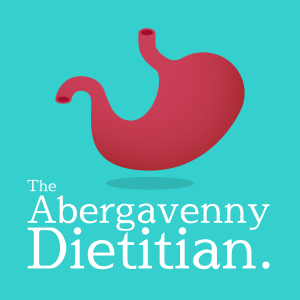There has been a lot of interest in Vitamin D micronutrient lately. And, as we’ve all been enjoying some lovely weather lately, I though it was a good time to write about “the sunshine vitamin”!
What is Vitamin D, and why do we need it?
A “vitamin” is a chemical that helps our body function. It is a nutrient that we cannot make in our body. However, Vitamin D is slightly different because – although we call it a vitamin, it is actually a hormone and we can make it ourselves.
This nutrient allows the body to absorb calcium and phosphorus, and so allow us to build strong bones and teeth. Is also has a very important role in protecting muscle strength. If we don’t get enough, therefore, we can be at risk of rickets (deformed bones and muscles), osteomalacia (soft bones) and falls (particularly in older adults).
Is it easy to get all our Vitamin D from the Sun?
Our bodies can manufacture vitamin D under our skin, when our skin is exposed to sunlight. However there are a few reasons why we might not get enough from the sun:
- The sun is only strong enough to do this between April and September.
- The sun is not necessarily often shining in the UK – we are not always as lucky as we have been this Spring! And, don’t you seem to find that the weather is always nice when you are inside at work, and then the rain comes along on your day off?
- Many of us choose to cover most of our skin – either for cultural reasons or to protect ourselves from sunburn. It is very important to balance the need to make Vitamin D with the need to protect ourselves from turning red or getting burnt.
- Finally, older skin and naturally dark skin is less efficient at making vitamin D.
Can we get it from anywhere else?
Foods that contain the sunshine vitamin include oily fish, eggs and milk. However, during the winter months when we need it most, the food itself will contain less because the animals in the fields are not exposed to the sunlight and so not making their own! Some foods, for example margarine, some breakfast cereals, infant formula milk and some yoghurts are fortified with the nutrient.
Here’s my favourite vitamin D fact: Leaving your mushrooms in the sun will increase their vitamin D content!! Yes, leave your mushrooms on a sunny windowsill for a couple of hours before eating them, and the fungi are able to carry on manufacturing the micronutrient in their cells.
What about supplements?
Aside from this, it is very difficult for anyone on a plant-based diet to get adequate amounts of vitamin D from their diet, and this brings me onto supplements.
The official advice in the UK, from the Scientific Advisory Committee on Nutrition, is now that all adults and children over the age of one should consider taking a daily supplement containing 10 micrograms (µg) of Vitamin D, especially during autumn and winter. Those more at risk (older adults, those with dark skin, those who cover up or spend a lot of time indoors, pregnant and breast-feeding women) should consider taking this supplement all year round. All babies under one year should be given a daily supplement.
Those following a strictly plant-based diet can find supplements where the micronutrient is obtained from lichen, as standard supplements are often not vegan.
Can the sunshine vitamin help prevent the Coronavirus?
There has been some interest around vitamin D and the Coronavirus. It is very important to note that taking excess vitamin D will NOT have any effect in protecting you against this, or any other infection. The advice remains to consider a daily 10 µg supplement. Excessive supplementation can be harmful. See here for more information about what to eat to best prepare your immune system for viruses.
How can vitamin D benefit me?
I mentioned the importance of the micronutrient in muscle strength above. In one trial, nursing home residents who received vitamin D and calcium supplements suffered 72% fewer falls than those taking a placebo.
The micronutrient can be found in brain tissue and two large studies recently suggested that low vitamin D levels could increase the risk of developing dementia. Researchers now agree that large-scale studies should be carried out to fully investigate the link.
A recent study – and the largest ever done on the subject – concluded that a vitamin D deficiency is linked to heart disease. Over 70 per cent of nearly 1500 patients undergoing investigation for narrowing arteries had a deficiency, and there was a 32% higher occurrence of coronary artery disease in those patients with the lowest vitamin D levels. The results were so clear, the team now want to investigate the effects of taking the micronutrient on boosting heart health.
Groups at risk of deficiency
Because vitamin D is a fat-soluble vitamin, its absorption depends on the gut’s ability to absorb dietary fat. Individuals who have a reduced ability to absorb fat (for example Crohn’s disease, cystic fibrosis, coeliac disease and ulcerative colitis involving the terminal ileum) might require vitamin D supplementation.
A Body Mass Index (BMI) of over 30 has been associated with lower Vitamin D levels – this may be because greater amounts of fat below the skin affect the release of the vitamin into the circulation. Obese individuals who have undergone gastric bypass surgery may become vitamin D deficient over time unless they are very careful to have rich food sources, or to take a supplement, as the part of their gut where the vitamin is absorbed has been bypassed.
Again – please note that many of these studies conclude that more research is needed! Like many areas of nutrition, we are finding out more and more all the time. For now, the advice remains to aim for a healthy, balanced and varied diet – and to follow the guidance above on the right amount of supplementation, and sun safety. Fingers crossed for more nice weather this summer!


